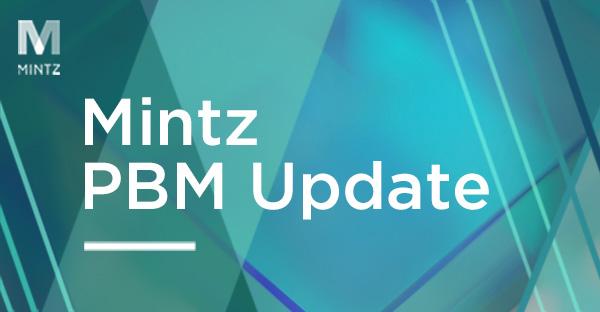
Health Care
Viewpoints
Filter by:
The Uncertain Landscape of Medicare Agent/Broker Compensation Rules
July 11, 2024 | Blog | By Tara E. Dwyer, Xavier Hardy, Madison Castle
In the Proposed Medicare Advantage and Part D Rules for 2025, the Centers for Medicare & Medicaid Services (CMS) proposed significant changes to how Medicare Advantage organizations (MAOs) are allowed to contract with and compensate entities that provide agent/broker and enrollment services. The proposed rules were heavily disfavored by entities that provide such services, but were not widely commented on by MAOs or Part D sponsors (PDP Sponsors), which are the entities to which the rules actually apply.
Five Observations from FDA’s Responses to Comments in the Final Rule on LDTs
July 10, 2024 | Blog | By Benjamin Zegarelli
Now that the final rule on laboratory developed tests (LDTs) has been available for over a month and the stages of the enforcement discretion phaseout process and the Food and Drug Administration’s (FDA’s) newly proposed policies for continuing limited enforcement discretion for certain types of LDTs have been thoroughly described and dissected (including by us in our previous post), it’s high time to dig into FDA’s perspectives on the comments it received on the proposed rule.
Petition for Certiorari Filed in Supreme Court in False Claims Act Case Seeking Review of Whether “Willful” Under the Anti-Kickback Statute Requires Knowledge that the Conduct is Unlawful
July 8, 2024 | Blog | By Laurence Freedman, Laura E. Martin
The Supreme Court now has the opportunity to define “willfulness” under the federal criminal Anti-Kickback Statute (AKS). In a declined qui tam case filed against McKesson Corporation, a pharmaceutical wholesaler, the relator, Adam Hart, a former McKesson employee, filed a petition for certiorari seeking Supreme Court review of a Second Circuit decision that upheld the dismissal of relator’s complaint asserting claims under the civil False Claims Act (FCA) premised on alleged violations of the AKS. U.S. ex rel. Hart v. McKesson Corp., 96 F.4th 145 (2d Cir. 2024). A violation of the AKS requires as the scienter element that the defendant "knowingly and willfully" offered or paid remuneration to induce the recipient of the renumeration to purchase goods or items for which payment may be made under a federal health care program. 42 U.S.C. § 1320a-7b(b)(2). The Second Circuit held that a defendant does not act “willfully” within the meaning of the AKS unless that defendant “act[s] knowing that his conduct is unlawful.” United States ex rel. Hart, 96 F.4th at 154.
A First-of-its-Kind Telemedicine Criminal Prosecution: Key Takeaways
July 3, 2024 | Blog | By Daniel Cody, Ellen Janos, Kathryn Edgerton
The indictment, arrest, and arraignment of Ruthia He, the founder, CEO, and clinical president of Done Global (Done), and David Brody, clinical president of Done and the sole shareholder of Done Health, P.C. (PC) in connection with their alleged criminal conspiracy to distribute controlled substances, commit health care fraud, and obstruct justice may bring heightened scrutiny to behavioral health telemedicine companies and other virtual health platforms. The seven-count indictment represents the Department of Justice’s (DOJ’s) first criminal drug distribution prosecutions related to telemedicine prescribing. The prosecution of the defendants is proceeding in federal court in the Northern District of California and several additional Done personnel including an executive, physician, and nurse practitioners are similarly being prosecuted.
Colorado AI Systems Regulation: What Health Care Deployers and Developers Need to Know
June 27, 2024 | Blog | By Pat Ouellette
As the first state law to regulate the results of Artificial Intelligence System (AI System) use, Colorado’s SB24-205, “Concerning Consumer Protections in Interactions with Artificial Intelligence Systems” (the Act), has generated plenty of cross-industry interest, for good reason. In some ways similar to the risk-based approach taken by the European Union (EU) in the EU AI Act, the Act aims to regulate developers and deployers of AI Systems, which are defined by the Act as “any machine-based system that, for any explicit or implicit objective, infers from the inputs the system receives how to generate outputs, including content, decisions, predictions, or recommendations, that can influence physical or virtual environments.”
Court Split Creates Uncertainty Around Enforcement of the No Surprises Act
June 20, 2024 | Blog | By Cassandra Paolillo, Madison Castle
A recent court split about whether awards granted through arbitration under the No Surprises Act (NSA) are enforceable through litigation has created uncertainty around an already complicated process. A Texas judge recently held that the NSA does not grant parties a right to bring suit to enforce arbitration awards, while last year a New Jersey court granted enforcement of a similar award. The resulting split raises questions about the enforceability and utility of the NSA and its Independent Dispute Resolution (IDR) process.
Massachusetts Attorney General’s Office Indicting Dental Providers for Fraud and Patient Harm. Behavioral Health Providers Are on Notice.
June 18, 2024 | Blog | By Eoin Beirne
True to their word in several recent public statements, the Chief and Deputy Chief of the Medicaid Fraud Division have brought several recent criminal cases against dentists for fraudulent billing and unlicensed practice of dentistry.
EEOC PWFA Final Rule Goes Into Effect June 18, 2024: Key Takeaways for Employers
June 17, 2024 | Blog | By Delaney Busch, Kevin Kim
Mintz’s Employment Practice will continue to monitor any future developments and legal challenges and remains ready to assist employers with compliance with the PWFA and the EEOC’s final rule.
Judge Denies FTC’s Request to Enjoin Sale of Two Hospitals in North Carolina
June 11, 2024 | Blog | By Bruce Sokler, Payton Thornton
Last week, a federal judge in North Carolina declined to preliminarily enjoin Novant Health, Inc.’s (“Novant”) acquisition of two hospitals from Community Health Systems, Inc. (“CHS”). The FTC filed suit in federal court and in its in-house administrative court in January, alleging that the transaction violated Section 7 of the Clayton Act in the market for inpatient general acute care services sold to commercial health plans and their members.
Reversible Error: District Court Stutters, Ninth Circuit Shudders, Litigation Continues for Sutter
June 10, 2024 | Blog | By Bruce Sokler, Sherwet H. Witherington
Over ten years ago, individuals and businesses insured by health plans that contract with Sutter Health filed a class action lawsuit against Sutter Health alleging antitrust violations under federal and California laws. Sutter is a healthcare giant in Northern California, serving over 100 communities and 3 million people, and includes 24 hospitals, five medical foundations, and 40 ambulatory service centers.
Contract Year 2025 Policy and Technical Changes to the Medicare Advantage Program
June 6, 2024 | Blog | By Tara E. Dwyer, Samantha Hawkins
As part of its 2025 Medicare Advantage and Part D Final Rule (the Final Rule), the Centers for Medicare & Medicaid Services (CMS) finalized a number of regulatory changes relating to how Medicare Advantage (MA) plans offer supplemental benefits and how they communicate such benefits to plan members. As previewed in the Proposed 2025 Rules, the Final Rule outlines CMS’s intentions to (i) more closely monitor the supplemental benefits that a Medicare Advantage organization (MAO) offers and categorizes as "Special Supplemental Benefits" for the Chronically Ill (SSBCI) and (ii) require MA plans to send annual notices to MA plan enrollees regarding their available supplemental benefits.
Acting U.S. Attorney Levy Forecasts False Claims Act COVID Cases Targeting Private Lenders Of CARES Act Loans That Failed In Their Obligation To Safeguard Government Funds
June 5, 2024 | Blog | By Eoin Beirne, Jane Haviland
Acting U.S. Attorney Joshua Levy discussed the enforcement priorities for the Massachusetts U.S. Attorney’s Office (USAO) during a Q&A session on May 29, 2024, and made clear that the historical focus of the office remains the top priority: detecting and combating health care fraud, waste, and abuse.
340B Program Administrative Dispute Resolution Final Rule: Key Takeaways
May 16, 2024 | Blog | By Abdie Santiago, Pat Ouellette
On April 18, 2024, the U.S. Department of Health and Human Services (HHS) Health Resources and Services Administration (HRSA) released a new Final Rule for its oft-criticized 340B Administrative Dispute Resolution (ADR) Program (2024 Final Rule).
House Committee Proposes to Extend Medicare Telehealth Flexibilities, Eyes PBM Reform to Offset Expenses
May 15, 2024 | Blog | By David Gilboa, Sophia Temis
On May 8, 2024, the U.S. House of Representatives Ways & Means Committee passed a bipartisan bill entitled the “Preserving Telehealth, Hospital and Ambulance Access Act” by a vote of 41-0, which will potentially have far-reaching consequences for Medicare beneficiaries, health care providers, and the telehealth and PBM industries.
National Academies of Science, Engineering, and Medicine Issues Report on Inclusion of Pregnant and Lactating Persons in Clinical Research
May 8, 2024 | Blog | By Madison Castle, Kate Stewart
Last month, the National Academies of Science, Engineering, and Medicine (“NASEM”) issued a report discussing the inclusion of pregnant and lactating people in clinical research and the health impacts of inadequate data from research involving this subpopulation. Titled “Advancing Clinical Research with Pregnant and Lactating Persons: Overcoming Real and Perceived Liability Risks,” the report came as a response to Congress calling upon NASEM to examine the real and perceived prevalence of legal liability resulting from including these research subjects in clinical trials. Overall, the report concluded that legal liability for including pregnant and lactating persons in research is very limited, but that perceptions of potential liability and a lack of explicit guidance for including this population safely have created real barriers to their inclusion. In response, the report provides recommended actions for Congress, the Food and Drug Administration (“FDA”), the National Institutes of Health (“NIH”), and the Office of Human Research Protections (“OHRP”) to take to enhance the inclusion of this population in clinical trials, thereby enhancing data around the safety and efficacy of approved drug products for pregnant and lactating persons. Study sponsors and institutions conducting research should continue to monitor developments in this area, including guidance from FDA.
FDA’s Final LDT Rule Is Here, and the Changes Show the Agency Is Serious and Actually Listening to Stakeholders
May 6, 2024 | Blog | By Joanne Hawana , Benjamin Zegarelli
The Food and Drug Administration (FDA) published its final rule on laboratory developed tests (LDTs) in the Federal Register on May 6, marking a watershed moment in the agency’s arduous decade-plus-long journey toward winding down its historical enforcement discretion posture for LDTs. But FDA’s crusade is far from over. It will have much to do to implement the four-year phase-out period described in the final rule and those efforts may be delayed by litigation seeking to enjoin implementation of the rule altogether. While we wait for the litigation shoe to drop, let’s take a look at what the final rule says and the changes FDA made in these highly significant policy decisions since the Notice of Proposed Rulemaking was published on October 3, 2023 (see our previous posts on the NPRM here and here).
PBM Policy and Legislative Update — Winter 2024
May 2, 2024 | Blog | By Theresa Carnegie, Tara E. Dwyer, Rachel A. Alexander, Bridgette Keller, Madison Castle, David Gilboa, Xavier Hardy, Abdie Santiago, Hassan Shaikh, Sophia Temis
Mintz is pleased to present its quarterly publication, PBM Policy and Legislative Update. This edition builds upon prior issues and summarizes activity from October through December 2023 that affects the PBM industry and will specifically highlight (i) federal legislative and enforcement updates, (ii) state legislative updates and litigation, (iii) other industry news, and (iv) Inflation Reduction Act (IRA) updates.
Unpacking CMS’s 2025 DSNP Changes: Considerations for Medicare Advantage Organizations
May 1, 2024 | Blog | By Tara E. Dwyer, Lauren Moldawer, Madison Castle
As part of its 2025 Medicare Advantage and Part D Final Rule (the Final Rule), the Centers for Medicare & Medicaid Services (CMS) made a number of enrollment changes impacting dual eligible special needs plans (DSNPs). The goal of these changes is to promote integration of Medicaid and Medicare services for full benefit dually eligible (FBDE) individuals. While stakeholders support the overall goal of better integration, the new policies are complex and may discourage Medicare Advantage Organizations (MAOs) from participating in Medicaid managed care programs in certain regions. They also highlight how a federal DSNP regulation that is tied to how a state contracts with entities that offer Medicaid benefits can result in different impacts in different states.
ACA Section 1557 Final Rule: OCR Prohibits Discrimination Related to Use of Artificial Intelligence in Health Care
April 29, 2024 | Blog | By Pat Ouellette
Preventing discrimination and bias in connection with the use of artificial intelligence (AI) in health care is among the principal current focuses of U.S. Department of Health and Human Services (HHS) and was among the health care directives in the recent Biden Administration Executive Order on Safe, Secure, and Trustworthy Development and Use of Artificial Intelligence (Executive Order). Consistent with these priorities, on April 26, 2024, the HHS Office for Civil Rights (OCR) and the Centers for Medicare & Medicaid Services (CMS) released an unpublished version of a new final rule under Section 1557 of the Affordable Care Act (ACA) that aims to broadly address inequity across health care but also requires certain actions of entities covered under Section 1557 around their use of AI in clinical decision-making (Final Rule).
Explore Other Viewpoints:
- Data Centers & Digital Infrastructure
- AI: The Washington Report
- Antitrust and Federal Regulation
- Appellate
- Arbitration, Mediation & Alternate Dispute Resolution
- Artificial Intelligence
- Awards
- Bankruptcy & Restructuring
- California Land Use
- Cannabis
- Class Action
- Complex Commercial Litigation
- Construction
- Consumer Product Safety
- Corporate Governance (ESG)
- Crisis Management and Strategic Response
- Cross-Border Asset Recovery
- DEI Legal Developments
- Debt Financing
- Direct Investing (M&A)
- Diversity
- EB-5 Financing
- Education & Nonprofits
- Employment
- EnforceMintz
- Environmental (ESG)
- Environmental Enforcement Defense
- Environmental Law
- Environmental, Social, and Corporate Governance (ESG)
- FDA Regulatory
- FDA in Flux
- False Claims Act
- Federal Circuit Appeals
- Financial Institution Litigation
- Government Law
- Growth Equity
- Health Care
- Health Care Compliance, Fraud and Abuse, & Regulatory Counseling
- Health Care Enforcement & Investigations
- Health Care Transactions
- Health Information Privacy & Security
- IP Due Diligence
- IPRs & Other Post Grant Proceedings
- Immigration
- Impacts of a New US Administration
- Insolvency & Creditor Rights Litigation
- Institutional Investor Class Action Recovery
- Insurance & Financial Services
- Insurance Consulting & Risk Management
- Insurance and Reinsurance Problem-Solving & Dispute Resolution
- Intellectual Property
- Investment Funds
- Israel
- Licensing & Technology Transactions
- Life Sciences
- Litigation & Investigations
- M&A Litigation
- ML Strategies
- Managed Care
- Medicare, Medicaid and Commercial Coverage & Reimbursement
- Mergers & Acquisitions
- Patent Litigation
- Patent Prosecution & Strategic Counseling
- Pharmacy Benefits and PBM Contracting
- Portfolio Companies
- Privacy & Cybersecurity
- Private Client
- Private Equity
- Pro Bono
- Probate & Fiduciary Litigation
- Products Liability & Complex Tort
- Projects & Infrastructure
- Public Finance
- Real Estate Litigation
- Real Estate Transactions
- Real Estate, Construction & Infrastructure
- Retail & Consumer Products
- Securities & Capital Markets
- Securities Litigation
- Social (ESG)
- Special Purpose Acquisition Company (SPACs)
- Sports & Entertainment
- State Attorneys General
- Strategic IP Monetization & Licensing
- Sustainable Energy & Infrastructure
- Tax
- Technology
- Technology, Communications & Media
- Technology, Communications & Media Litigation
- Trade Secrets
- Trademark & Copyright
- Trademark Litigation
- Unified Patent Court (UPC)
- Value-Based Care
- Venture Capital & Emerging Companies
- White Collar Defense & Government Investigations
- Women's Health and Technology









